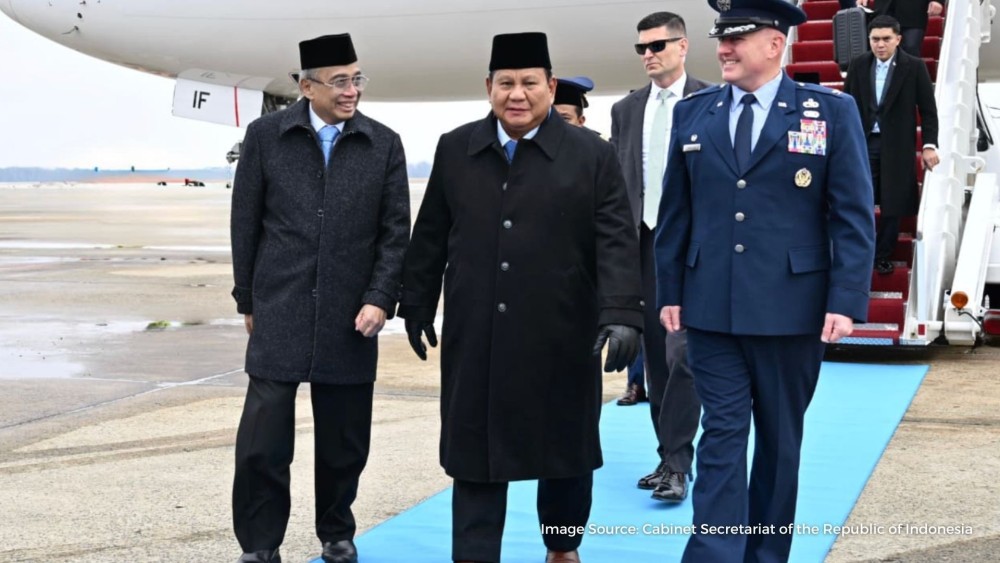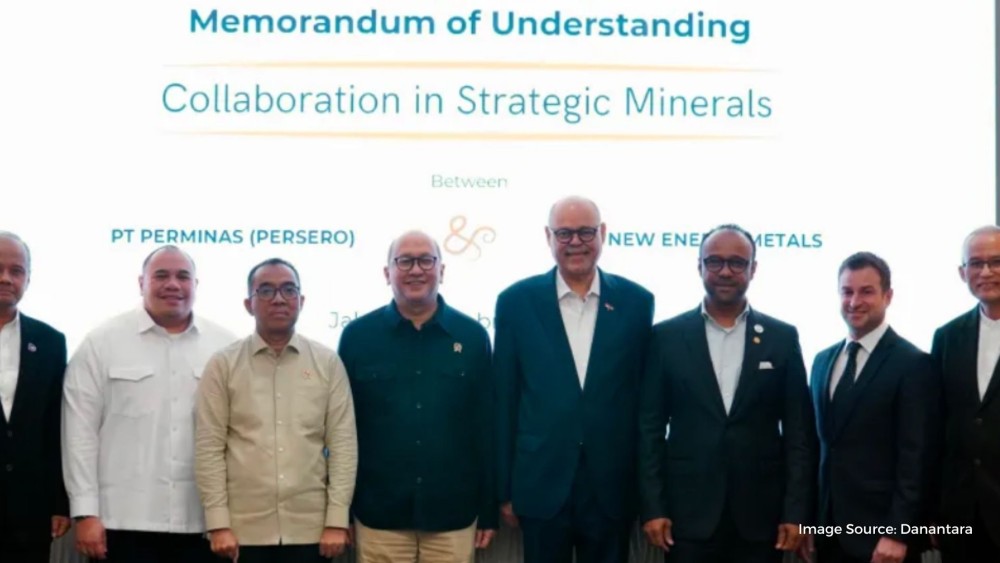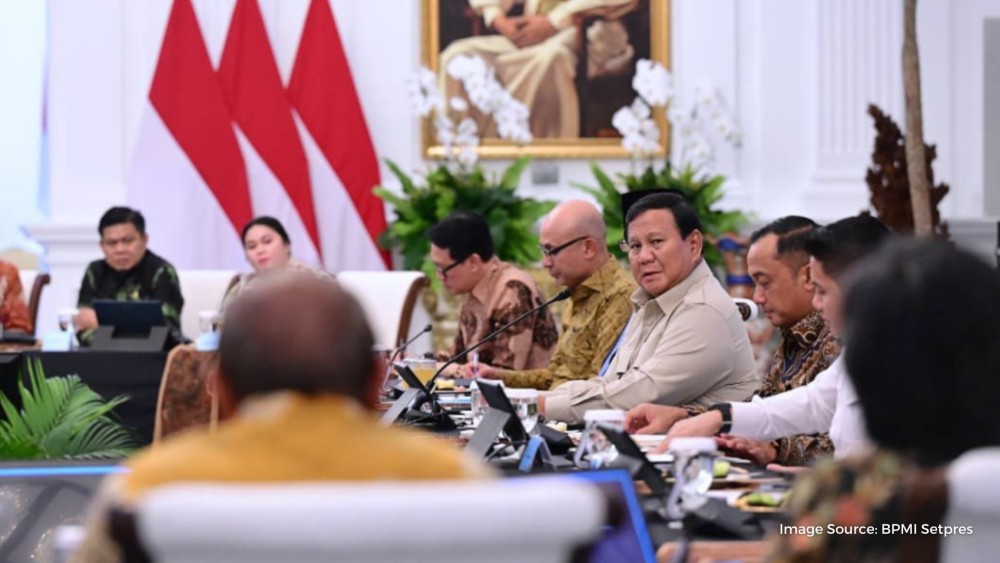This Week's Headlines (Jan 13 - 19, 2024)
19 Jan 2024

Indonesia records trade surpluses for 44 successive months: BPS
Indonesia recorded a surplus of US$3.31 billion in its trade balance in December 2023, marking its 44th consecutive monthly surplus since May 2020, according to Statistics Indonesia (BPS).
"Thus, Indonesia has been enjoying surpluses in trade balance for 44 months consecutively since May of 2020," BPS' Deputy for Distribution and Service Statistics, Pudji Ismartini, remarked at the Official Statistics News in Jakarta on Monday.
Ismartini noted that in December 2023, Indonesia had enjoyed trade surpluses with India, the United States, and the Philippines, adding that the total surplus, however, was lower as compared to US$3.92 billion recorded in December 2022.
She pointed out that non-oil and non-gas commodities had been the most significant contributors to the December 2023 surplus, with mineral fuels, vegetable and animal fats, iron, and steel being the main commodities.
Meanwhile, the trade balance of oil and gas commodities experienced a deficit of US$1.89 billion, with the main commodities being oil and crude oil.
"The deficit in oil and gas trade in December 2023 stood lower than the previous month but higher than the figure recorded in December 2022," she stated.
Cumulatively, the total value of Indonesia's trade surplus during the January-December 2023 period was at US$36.93 billion, a decline of 33.46 percent, or about US$17.52 billion, as compared to that during the same period in 2022.
She said that based on data for the 2013-2023 period, Indonesia has been enjoying consecutive surpluses in trade in goods for the last four years, with the highest figure recorded in 2022.
Meanwhile, the total value gained from exports in December 2023 had reached US$22.41 billion, thereby translating to an increase of 1.89 percent as compared to November last year.
In terms of imports, Indonesia recorded a total value of US$19.11 billion in December 2023.
Source: Antara News
BYD vows to build car factory in Indonesia this year
A planned production facility to be opened in Indonesia by BYD is not expected to increase nickel consumption as the Chinese carmaker is a pioneer of non-nickel battery technology.
Chinese electric vehicle (EV) manufacturer BYD has vowed to set up a production facility in Indonesia this year.
"Our progress aligns with the direction of the Indonesian government. It is part of our long-term commitment to fostering the EV ecosystem development in the country," said Eagle Zhao, president director of BYD's local subsidiary, during a product launch event on Thursday.
The company declined to disclose where the facility would be built, what its capacity would be or when construction would start.
At the event, BYD launched three car models, namely the Dolphin, Seal and Atto 3. All of them are to be manufactured in China before being imported into the country.
The firm said it was still in talks with regulators and conducting market studies to determine the prices of those cars in the Indonesian market.
Coordinating Economic Minister Airlangga Hartarto noted that the BYD cars would diversify the range of EVs available in Indonesia and promote EV adoption in the country.
He said the investment of the China-based firm in Indonesia would amount to US$1.3 billion and the factory would have a production capacity of 150,000 units per year, based on a discussion with BYD executives.
"The government encourages BYD to increase local content in its product to improve [Indonesia’s] industrial competitiveness and integration [with local supply chains]," Airlangga said in his opening speech at the event.
BYD became the best-selling EV brand globally in the fourth quarter of last year when the company sold 526,409 all-electric cars, surpassing Tesla's 484,507 in the same three-month period.
BYD's cars typically retail for less than $30,000, compared to more than $40,000 for Tesla's.
In Indonesia, BYD has sold electric buses since 2018, as well as forklifts for some companies and EVs for taxi company Blue Bird. By the end of this year, the firm aims to have a network of 50 dealerships in Indonesia, with seven outlets to begin operating in January.
Nickel disconnection
According to Rachmat Kaimuddin, the coordinating maritime affairs and investment minister’s undersecretary for infrastructure and transportation coordination, BYD's entrance supports President Joko "Jokowi" Widodo's instruction to have an annual domestic EV production capacity of 600,000 units by 2030.
He also expressed hope that the Chinese firm could support the development of the local EV battery ecosystem, as Indonesia was the biggest producer of nickel, a key material for the production of EV batteries.
"With the local content requirement [to be set at] 60 percent in 2027, it will no longer be possible to import EV batteries [for cars sold in Indonesia]. We hope BYD can take part in the opportunity [to manufacture EV batteries in Indonesia], as the firm is also a big battery producer," Rachmat said at the same event.
However, Andry Satrio Nugroho, an economist at the Institute for Development of Economics and Finance (Indef), said BYD’s launch in Indonesia had no connection with the country's efforts to increase the usage of nickel, as the firm was the pioneer of non-nickel battery development in China.
He also pointed out that BYD entered Indonesia after the issuance of Presidential Regulation No. 79 of 2023, which allows companies to import completely built-up (CBU) EVs into the country until the end of 2025, and said the government had only focused on increasing EV penetration in the country, rather than encouraging the usage of nickel.
"Up until now, I have not seen any regulation that gives a pretty huge incentive for manufacturers who use nickel in EV batteries. The government only opened the import tap for CBU products, because it could not hit the target of EV penetration without that," Andry told The Jakarta Post on Thursday.
He opined that it was almost impossible to push BYD to move from lithium-based batteries to nickel, as the former was currently preferred by global manufacturers, including BYD's competitor Tesla. Thus, Andry said, some producers might opt to increase their local content in Indonesia by setting up a manufacturing facility or establishing EV charging stations rather than by producing batteries within the country.
Rachmat said the government remained open-minded about various alternatives to nickel-based batteries, including lithium and hydrogen. However, he also expressed optimism that Indonesia's nickel would be still be popular and downstreaming programs would continue.
"Some nickel will go to battery production, but some of it will continue to go to the stainless steel industry," he said.
BYD Asia-Pacific general manager Liu Xueliang said he was aware of Indonesia’s abundant nickel reserves. Thus, after the launch date, the firm would conduct an analysis of how it could benefit from the mineral.
"In the future, maybe we will know how to use nickel to support our growth, so please be patient," Liu concluded.
Source: The Jakarta Post
Luhut : Government Will Postpone Implementation of 40%-75% Entertainment Tax
The Coordinating Minister for Maritime Affairs and Investment (Menko Marves) Luhut Binsar Pandjaitan revealed that the government will postpone the implementation of an entertainment tax ranging from 40%-75%.
As is known, the increase in entertainment tax rates has caused an uproar from various parties.
Luhut said, his party has gathered several related agencies to discuss the postponement of the entertainment tax increase.
"Yes indeed yesterday I heard about it and I immediately gathered the relevant agencies about this issue. Including the Governor of Bali and so on. So we want to postpone its implementation," said Luhut on his personal Instagram account @luhut.pandjaitan, Wednesday (17/1).
He stressed this policy is not only from the government but also through discussions with the Commission XI of the Indonesian House of Representatives. Therefore, this rule will be re-evaluated.
"Then there is also a judicial review to the Constitutional Court (MK), I think we should consider that," he said.
On the other hand, according to him, entertainment venues cannot only be seen from nightclubs alone but small traders who also sell food and drinks will also be affected by this policy. In addition, he also does not see an urgency to increase the intended entertainment tax.
"I think I am very pro with it and I don't see a reason for us to raise taxes from there," added Luhut.
Based on Law Number 1 of 2022 concerning Financial Relations between the Central Government and Regional Governments (UU HKPD). Referring to Article 58 paragraph 2, the specific Goods and Services Tax (PBJT) rate for entertainment services at discos, karaoke, nightclubs, bars, and steam baths/spas is set at a minimum of 40% and a maximum of 75%.
In line with the mandate of the UU HKPD, regional governments have also established regional regulations (perda) to implement the imposition of special entertainment tax rates for these specific services.
Unfortunately, many entrepreneurs protest and object to these rates, which are considered to be able to kill the entertainment business world.
Source: Kontan











